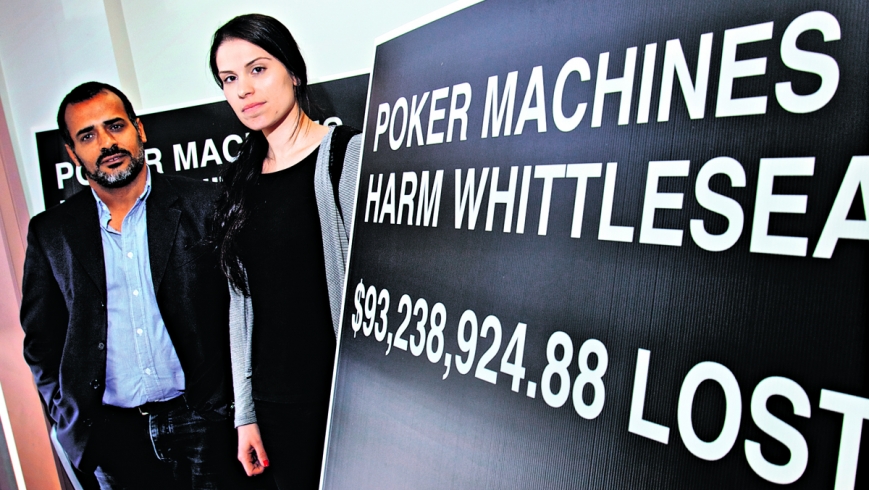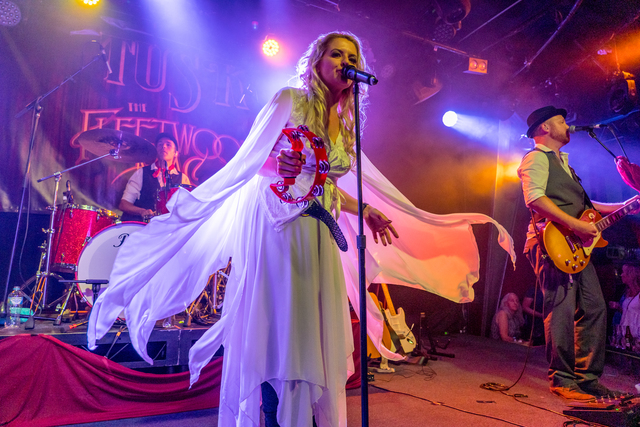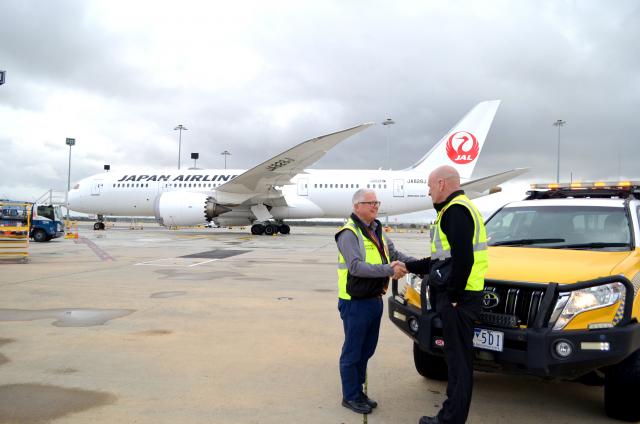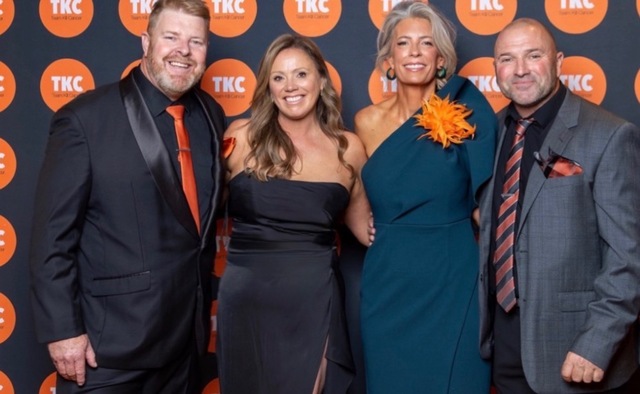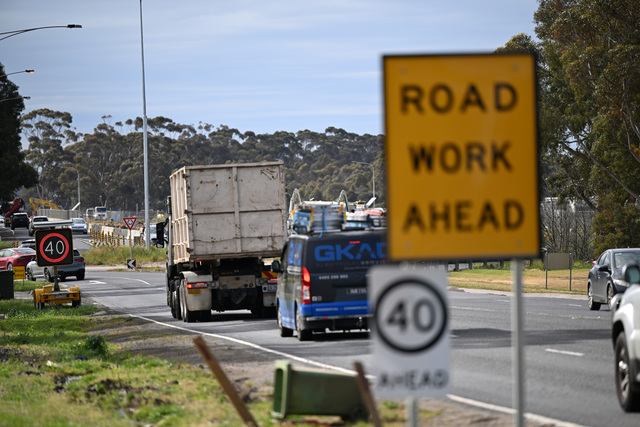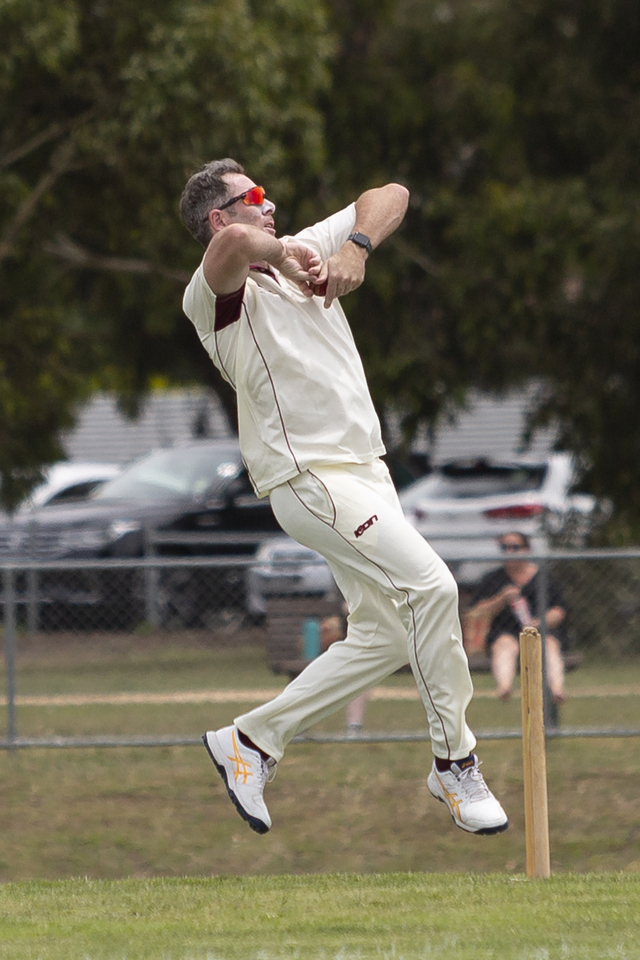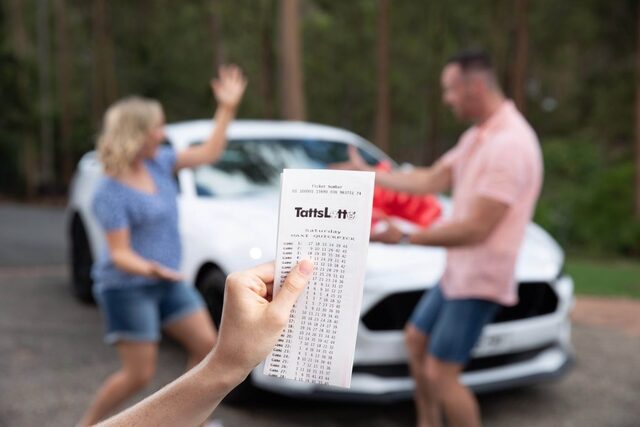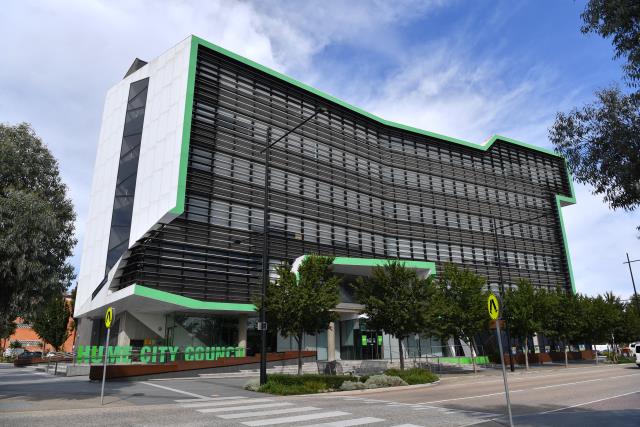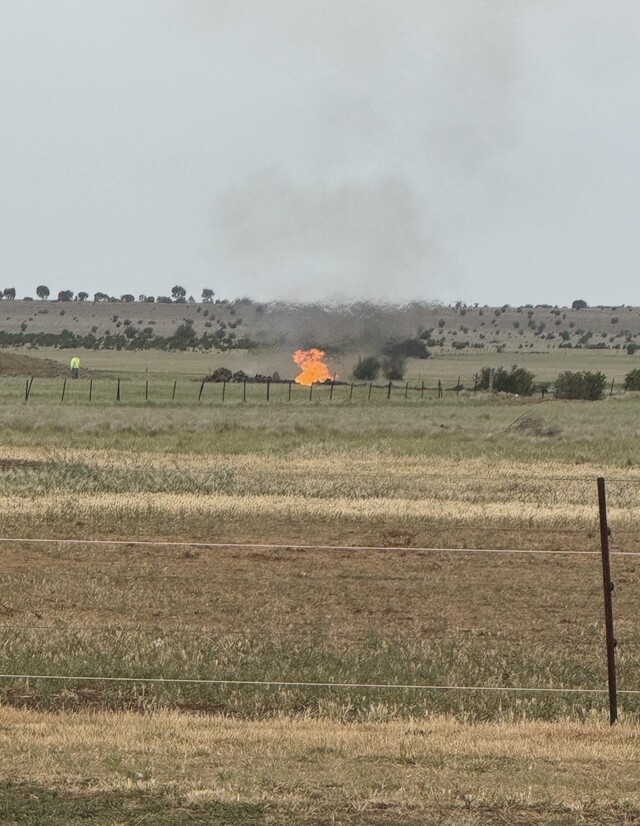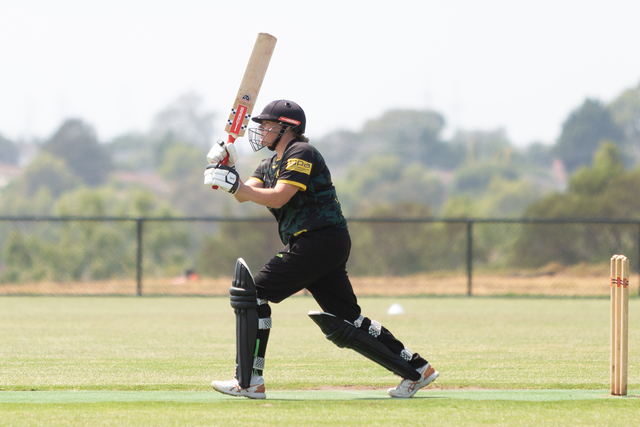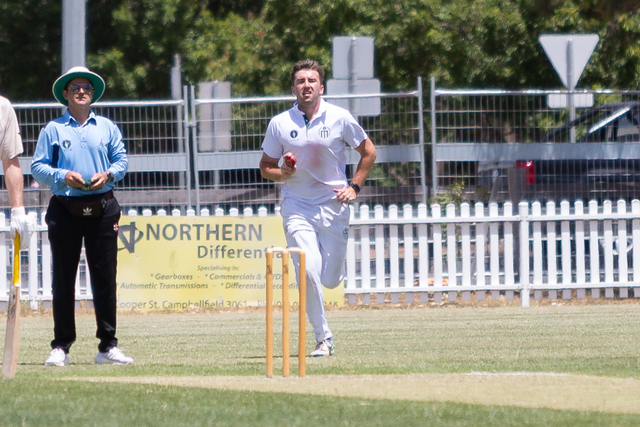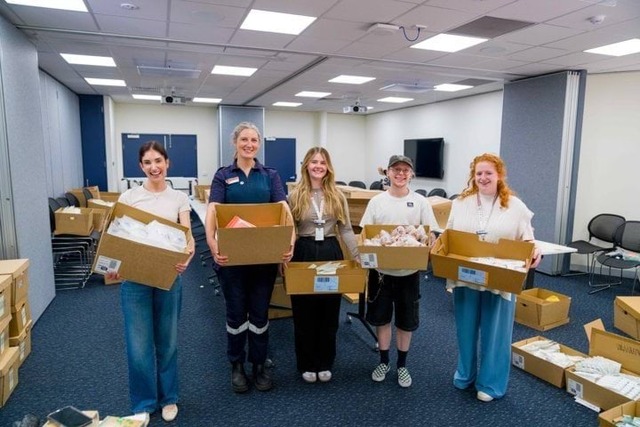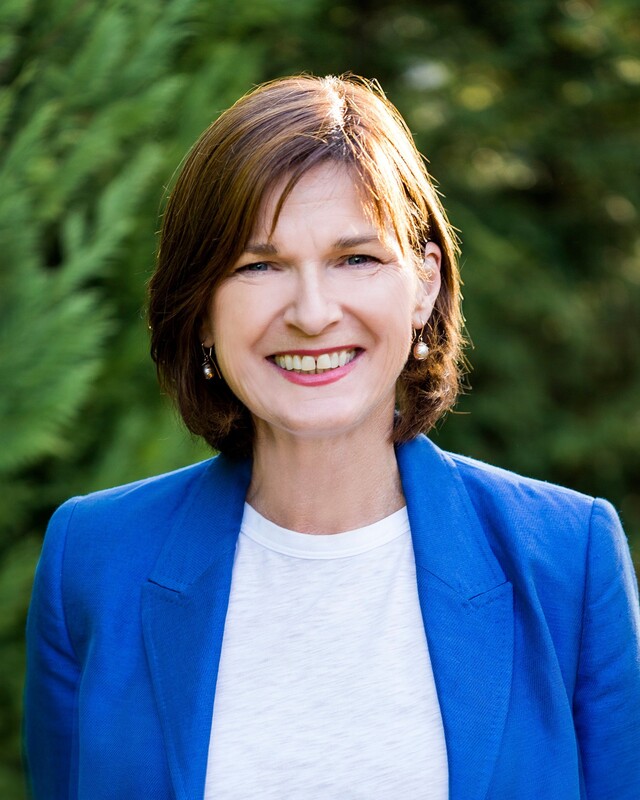Posters likening gambling to smoking are popping up across Melbourne’s north as part of a new Whittlesea Interagency Taskforce on Gambling (WITG) “product safety” campaign.
The taskforce has A3-size posters with slogans such as “Cigarettes and poker machines are both designed to addict”, “This machine makes $200,000 a year”, and “$93,238,924 lost”, referring to the amount of money lost to electronic gaming machines in Whittlesea in the 2012-13 financial year.
The posters are available to members of the community who want to express their opposition to gambling.
The taskforce was established last December following the collapse of Whittlesea council’s Responsible Gaming Forum. WITG members include Whittlesea Community Connections, mental health organisation Neami National and community organisation Kildonan.
Whittlesea Community Connections chief executive and WITG spokesman Jemal Ahmet said the aim of the poster campaign was to shift focus away from the gamblers and onto the institutions that offer access to gaming. “It’s focusing more on the products as being unsafe whereas the trend in the past has been to focus on the gambler.”
Mr Ahmet said gambling should be viewed as an “unsafe product that is detrimental to society’’. He said the financial disadvantage that problem gamblers were faced with caused far-reaching social issues such as depression, suicide and domestic violence.
The WITG is calling for action to combat domestic violence caused by problem gamblers. In a recent article in the Asian Journal of Gambling Issues and Public Health, University of Melbourne researchers found that 52.5 per cent of family members affected by problem gamblers had reported some form of family violence in the past 12 months.
Whittlesea councillor Sam Alessi said he supported WITG’s attempt to highlight the severity of the gambling issue in Whittlesea.
Cr Alessi said the council should be tackling “the gaming scourge in the municipality” after the forum collapsed.
“As a municipality we did some good stuff bringing venue operators together,” he said. “Unfortunately, we haven’t progressed any further and venue operators didn’t want to do any more to help.”

